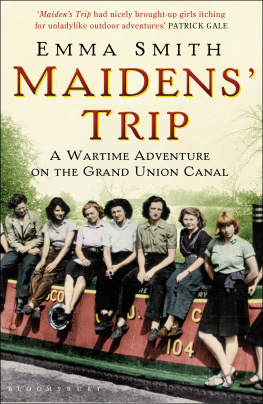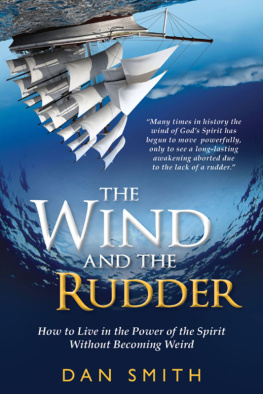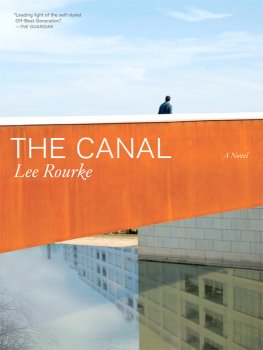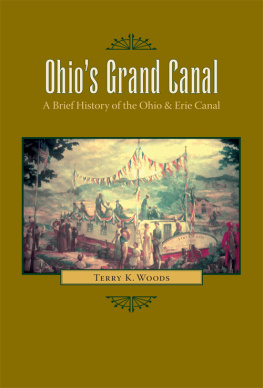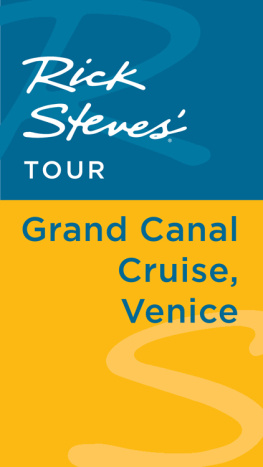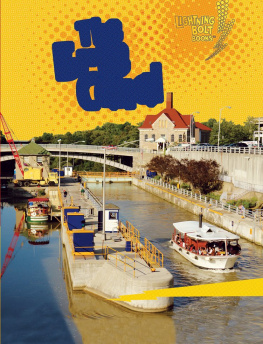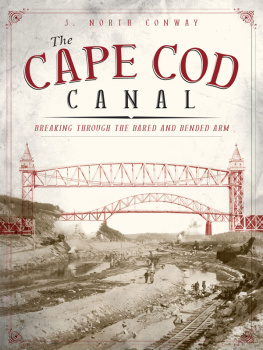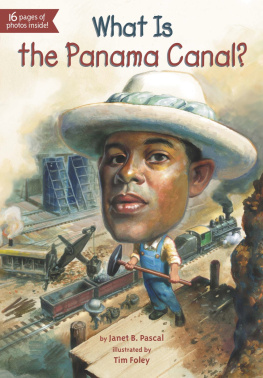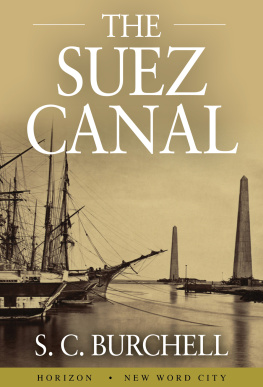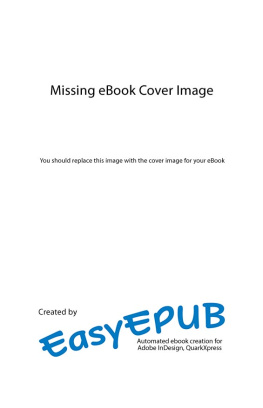Emma Smith was born Elspeth Hallsmith in 1923 in Newquay, Cornwall, where she lived until the age of twelve. Her first book, Maidens' Trip , was published in 1948 and won the John Llewellyn Rhys Memorial Prize. Her second, The Far Cry , was published the following year and was awarded the James Tait Black Memorial Prize.
In 1951 Emma Smith married Richard Stewart-Jones. After her husband's death in 1957 she went to live with her two young children in Wales, where she proceeded to write four successful children's books, a number of short stories and, in 1978, her novel The Opportunity of a Lifetime . In 2008 her memoir of her Cornish childhood, The Great Western Beach , was published to widespread critical acclaim. Emma has lived in the London district of Putney since 1980.
The Great Western Beach
The Far Cry
The Opportunity of a Lifetime
For Children
Emily, the Travelling Guinea Pig
Out of Hand
Emily's Voyage
No Way of Telling
We were awakened by a thunderous knocking on the side of the butty. The alarm had not been set: it was eight o'clock. Woefully unprepared we sprang out of bed and began shuffling into our clothes. The banging was repeated with obvious anger.
'All right, all right, coming.'
'We want to unload you and the boats ain't ready. The gang's waiting.' The foreman, with whom we were usually on the best of terms, was thoroughly vexed. Sluggards, he thought us, and worse. We burst out of the cabins with buttons undone and boots unlaced. Three minutes before, we had been fast asleep.
'We forgot to set the alarm. Terribly sorry, we won't be long...'
There was no excuse. All around us the day was well ahead. The sun was miles up, chimneys were smoking, babies were squalling, washing flapped abroad. The men on the wharfside, kicking their boots and waiting for us to uncloth the boats, had all had their breakfasts an hour or more before, had risen in the dark and queued perhaps for trams in cold streets still full of shadow. Eight o'clock was a late hour. We scrambled about on the butty, tearing untied the top-strings and bundling back the tarpaulin that for six days had kept hidden our cargo of steel. Out came the planks, the stands, the wooden supports, and were flung ashore. With side-cloths unrolled and an air of slovenly haste predominant, we raised our crimson faces and said:
'There you are....'
At once two men leapt into the hold, the crane swung into position and the unloading of the Ariadne began.
More calmly we began to uncloth the Venus , folding the topcloths neatly and stowing them away under the cratch, rolling down the side-cloths and lashing them in two tight pipe-lines along the gunwales. The weather was lovely, not still, as the previous day had been, but with a brisk breeze whipping the dirty water into a semblance of purity. The labour of Limehouse was very soon undone and the Venus lay trimly open to the sky.
'You've took in a bit of water, ain'tcher?' said one of the unloaders.
We leaned our chins on the tarry gunwale and looked over into the Ariadne 's hold. Water in the stern end was swaying about above the floor-boards and the men trampled through it as they worked.
'Lord,' said Charity. 'We ought to bale that your feet must be getting soaked.'
'Ah, leave it alone now,' said the man. 'It don't hurt our boots and it'll help to keep the boat down once she's empty.'
It was a gymnastic sort of day. We enjoyed swinging ourselves up on to the cross-beams and the other athletic feats necessary in unclothing a boat. But gymnastics make for hunger, especially before breakfast, and Charity, catching a particular glance from Nanette, disappeared into the butty cabin and soon there was the smell of bacon frying. Breakfast we ate at nine o'clock, leaving the back-door of the butty open so that we could see into the hold and keep an eye on affairs there. Charity made out a shopping list while she drank her tea. The boat rocked from side to side as the billets were taken out of her.
'Bread,' said Charity. 'And I'll see if I can get some fresh milk. Potatoes. Something green in vegetables, like cauliflower. Ink. Fish perhaps. Prunes, because they're so good for us.'
'Horrid,' said Nanette. 'Get sultanas instead.'
'Cigarettes,' said Emma.
'And matches. We all ought to put another pound in the kitty there's only ten bob left.'
'Buy a newspaper,' shouted Nanette after her as she left. 'Do you think she heard? She'll probably buy The Times and I meant the Mirror .'
'Don't be so hard on her,' said Emma.
'I'm not hard on her; I'm hard on myself.' Enjoying a mood of virtue, she added: 'And now I'm going to chop some firewood.'
Emma went off to the engine-room to clean the mud-box, but almost at once was called away by the gang. The Ariadne was empty and they needed to have the boats swapped round. Nanette, crouching down on the wharf with a chopper in her hand and several rotten planks beside her, was being closely watched by a small boy called Amos from one of the neighbouring boats. She threw down the chopper immediately. We untied the boats, withdrew the Ariadne , no was light as a cockle, pulled the Venus in against the wharf and taking the butty-boat outside her again lashed them both abreast. Nanette picked up her chopper and Emma went back to her mud-box.
The mud-box held a filter through which the circulating water passed before cooling the engine, and was placed under one of the steel floor-boards in the most awkward corner. She bent herself over it, scraping her hands and knocking her head. The nuts were stiff and there was not sufficient room to turn the spanner. She wrestled and swore, and had presently skinned the knuckles of her left hand and was swearing harder. The mud-box, once the lid had been taken off it, was unsavoury, full almost to the brim with a very soft mud compounded of all sorts of things it was pleasanter to leave nameless. She scooped it into a bucket with her hands and rinsed it back into its native canal. Having screwed on the lid, she discovered the filter lying behind her on the floor and the spanner had to be gingerly employed again. Her upsidedown head sang with blood. Her knees were creaking. She wiped her face and left a smear of black oil across it from mouth to ear. The engine itself was very dirty and due for a polish. Emma went back to the butty cabin to fetch some clean rags.
Nanette was sitting on a pile of steel watching Amos chop the wood.
'I thought...' began Emma.
'Yes, I know,' replied Nanette placidly, 'I gave him sixpence. It made him very happy. Don't be grudging.'
'What are you looking so black in the face about?' said Amos, borrowing from his parents' store of traditional wit.
Emma absently rubbed the smear on her cheek with one sleeve, forgetting to smile. 'How old are you?' she asked.
'Dunno,' answered Amos, splitting wood with a deft hand, for he was showing-off to Nanette. He was the size of an eight-year-old, but we guessed him to be about twelve. When he walked it was with a marked swagger, and he would later be a terror with the girls, his name on all the lock-beams from London to Birmingham.
'Which are your boats?'
He nodded his head backwards laconically. 'You don't want to tie your side-strings like that,' he said. He showed us a different sort of hitch and made us practise it until we had it right. We thanked him. Again he inclined his head with a winning mixture of the lord and ape, and went back to chopping wood at Nanette's feet. Emma, with a handful of rags and a tin of Bluebell metal polish, returned to the engine-room.
She started with the brass, picking out the brass cocks and handles and the brass feed-pipes, and when they were winking at her like so many eyes, began the greater task of clearing grease from the body of the engine and rubbing up the green and red enamel paint. The engine-hole familiarized itself minutely to her eye as she worked, until its character and her own became fused and her erratic train of thought arose directly out of this fusion, incorporating in all seriousness the oddest details of screws and piping with faces and conversations. Afterwards, whenever she met certain people the smell of the engine-hole came back to her, and certain ideas were confused for ever in her mind with winking brass cocks and green paint. She sat inside on the tool-box with her hands polishing and her thoughts wandering for twenty minutes, and when she came out Charity, hung with shopping-bags, was talking to Nanette. Two bottles of milk stood beside the pile of firewood.

